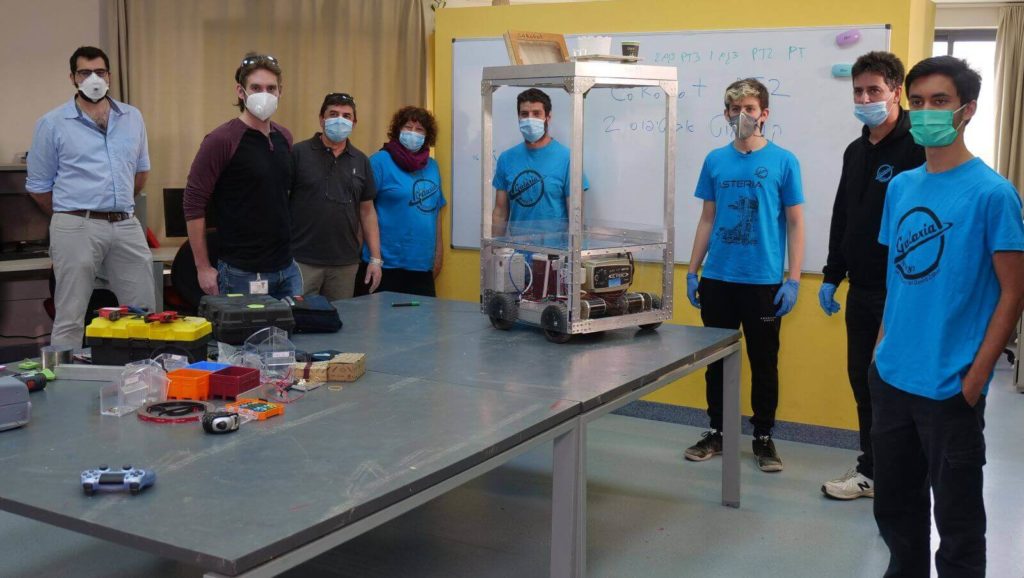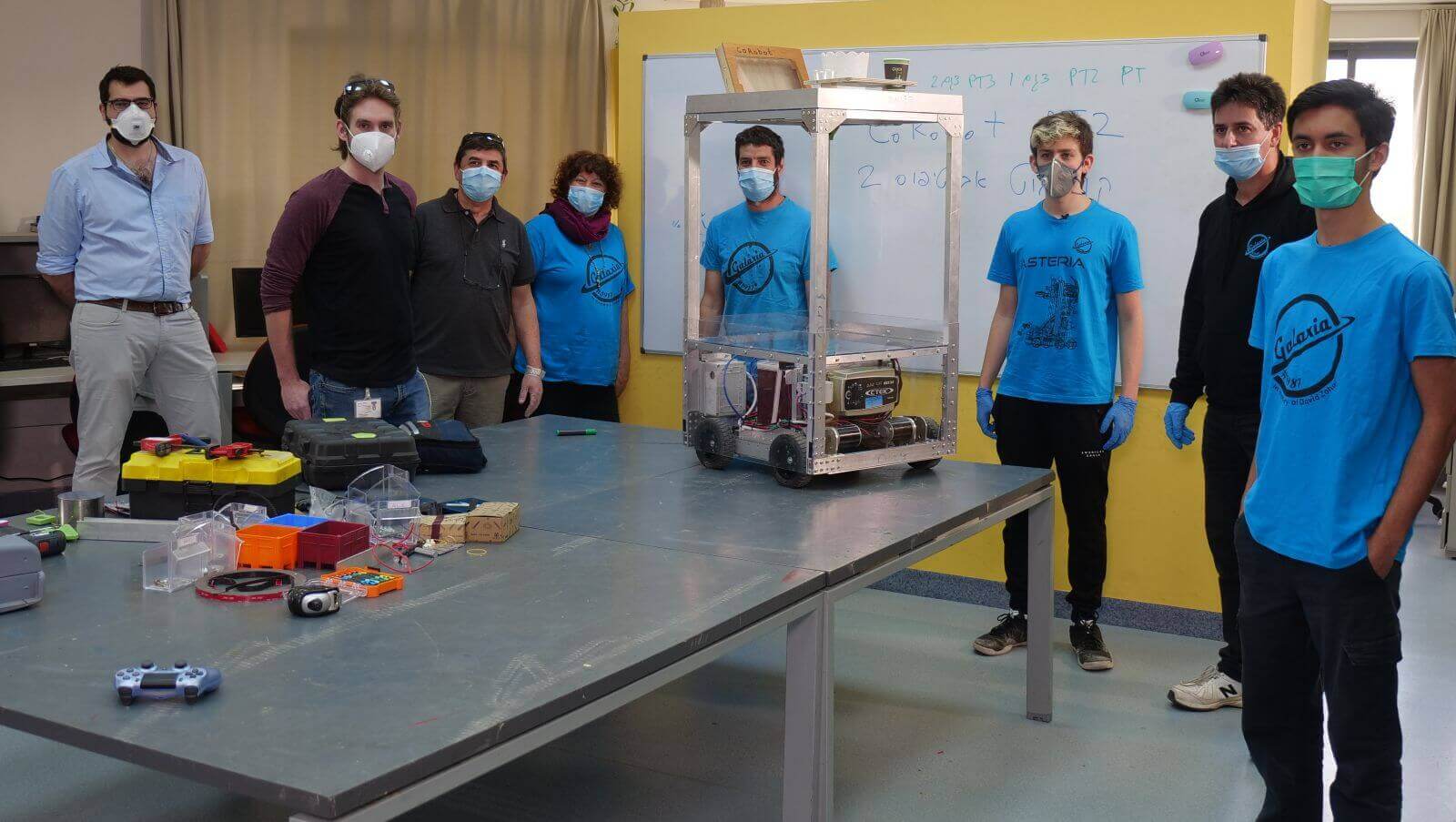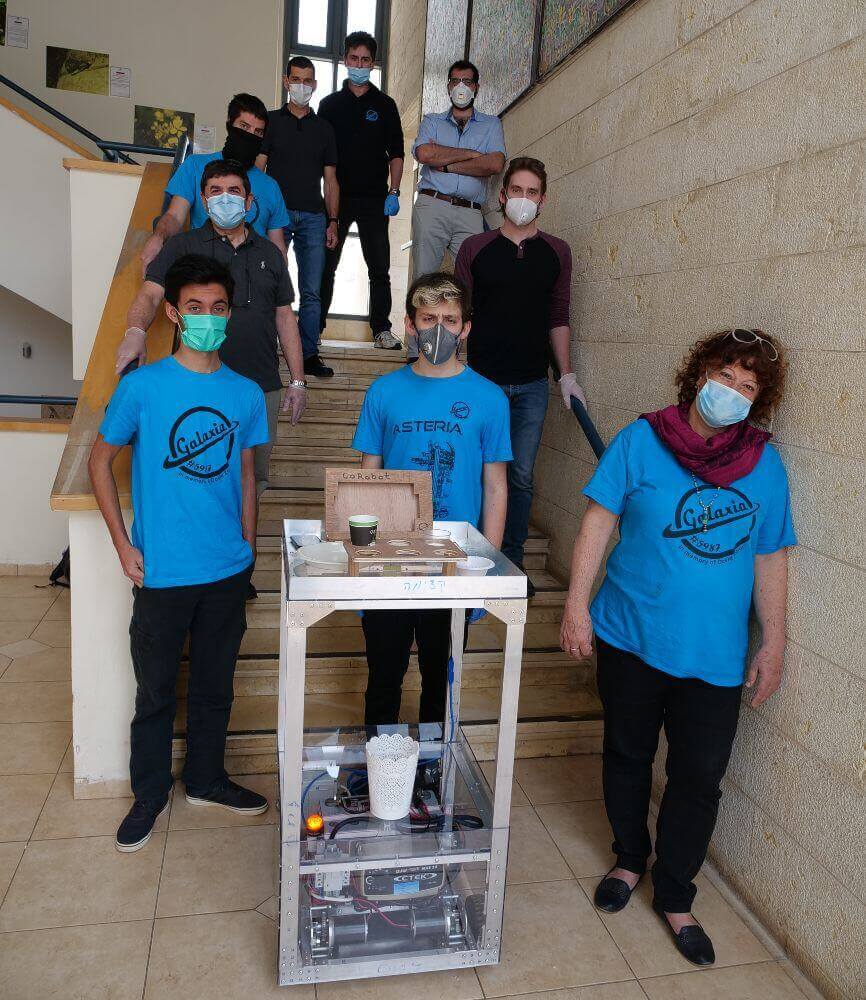
High schoolers’ robotic platform shuttles supplies to and from the coronavirus ward while controlled remotely by medical staff.
Article published at www.israel21c.or on April 12, 2020.
The battle against coronavirus in Israel just got a helping hand from an unexpected source: the robotics club at the prestigious Hebrew Reali School in Haifa.
Students and alumni of the robotics club, called “Galaxia 5987 in memory of David Zohar,” answered a call from Rambam Medical Center and the Technion – Israel Institute of Technology. In under a week, they developed a robot according to the hospital’s requirements.
 The Reali School’s robotics club and alumni with their CoRobot robotic prototype. Photo courtesy of Technion Spokesperson’s Office
The Reali School’s robotics club and alumni with their CoRobot robotic prototype. Photo courtesy of Technion Spokesperson’s Office
The prototype robotic platform, CoRobot, can shuttle supplies to and from the coronavirus ward to minimize the need for medical staff to enter and risk catching the highly infectious virus.
CoRobot can be remotely operated by medical staff using a joystick or a smartphone app. They can see what is happening through the video camera attached to the robot.
 CoRobot can transport supplies to patients while minimizing the need for human medical staff to enter infectious wards. Photo courtesy of Technion Spokesperson’s Office
CoRobot can transport supplies to patients while minimizing the need for human medical staff to enter infectious wards. Photo courtesy of Technion Spokesperson’s Office
“If the robot will successfully pass its installation at Rambam, in a relatively short amount of time we will be able to build more robots for Rambam and for similar departments in other Israeli hospitals,” says Prof. Alon Wolf, the Technion’s VP for External Relations and Resource Development.
Wolf is also a robotics expert who heads the the FIRST robotics program in Israel. FIRST is an international educational organization that uses robotics competitions to promote entrepreneurship and learning among young children and youth.
FIRST ISRAEL, led by Technion, runs hundreds of groups across the country. According to Wolf, should the robot prove successful, additional FIRST groups across Israel will join the effort.
Technion Prof. Gil Yudilevitch, who leads the Reali robotics program, added that more is in store for CoRobot.
“In the next stage the robot will incorporate a communication system that will include a screen, camera, microphone and speaker, and will be able to move from patient to patient and transmit information to the medical staff in real time. I hope that in the future we will add features that will help with the actual treatment, such as sensors that will check patients’ pulse rates and blood oxygen levels,” he says.
